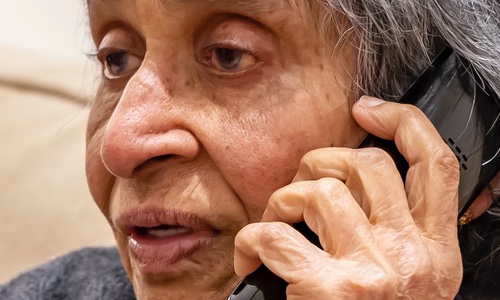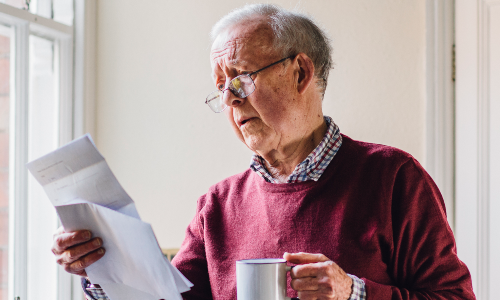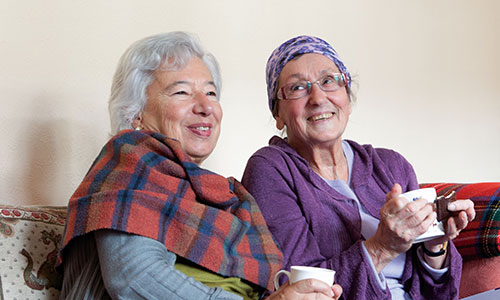As we emerge from an extremely difficult winter in which the cost of energy surged far above the budgets of millions of older people, Age UK continues to press the Government and energy regulator Ofgem to introduce an energy social tariff. But what is it and why is it so important?
First, the context: the typical energy bill is currently £2,500 a year – a staggering figure and unaffordable for many. Our research earlier this year found that cost of living pressures this winter led to more than half (54%) of older people cutting back on heat and power, and more than a quarter (29%) feeling too cold at home most or all of the time. Around 800,000 (5%) had actually left their home to seek warmth in a public space such as a shopping centre or library.
Now is the time for action
This is a truly shocking state of affairs in 21st century Britain. And with other utility bills now on the rise, never has it been more important to lower the cost of essentials for those in greatest need.
So, what can be done? A relatively simple solution would be to introduce a social tariff that effectively discounts the cost of essential services for those who are least able to afford them and offers permanent protection from future price fluctuations.
The UK has seen various iterations of social tariffs over the years. In fact, until the mid-2010s social tariffs were available in the energy market though were phased out following the introduction of the Warm Home Discount. They still exist in both the water and telecommunications industries but are in need of significant improvement.
Overwhelming support
Age UK has long campaigned for the re-introduction of an energy social tariff as well as improvements to existing discount tariffs across other utilities such as water. Our research tells us there is overwhelming support among older people for an energy social tariff, with 75% in favour.
Water companies across the UK are given the discretion to design their own social tariff based on their assessment of need in the area they serve. This includes flexibility when it comes to the level of discount provided and who is eligible. Due to what is effectively a postcode lottery, with the support for customers varying from area to area, Age UK is calling for the introduction of a singular social tariff to replace existing provision and move towards a fairer and more comprehensive package of discounted support.
In the telecoms sector, some providers do offer social tariffs that discount the cost of landline, broadband, and mobile services. However, there is no statutory or regulatory requirements for firms to offer social tariffs to their customers and the regulator, Ofcom, has highlighted that take-up of the small number of existing options is low. Yet these are discounts that could make a huge difference to customers on a low income.
As recent events have shown, energy prices can be exposed to significant volatility in wholesale markets, meaning that fixed price protections (such as benefits or cost of living payments) do not adequately adapt to the price being paid by consumers. An energy tariff that discounts eligible customers’ unit rates (the amount they pay per unit of energy consumed) would more effectively meet their needs and be more adaptive when underlying prices fluctuate.
Our recommendation
Our recommendation is that the Government directly fund a 50% energy bill discount for those in greatest need. This tariff must include automatic enrolment for eligible households, be universal across suppliers, sit alongside existing consumer protections, and be accessible for all customers struggling with their energy bills regardless of how they pay for their energy, what type of fuel they use to heat their home, and whether they have access to the welfare benefits system. If you are interested in learning more about our social tariff proposals, you can read our ‘Keeping the Lights on’ report.
Alongside a strong coalition of charity sector colleagues, we have made excellent progress with the Government and Ofgem. Both the Government’s Autumn Statement last year and the head of the regulator have cited the need to investigate the options for introducing a social tariff and we are optimistic that we will see a consultation launched over the coming months. We are hopeful that – alongside tariff reforms in the water and telecoms sector – the introduction of an energy social tariff will lead to future price shocks being more manageable for those of all ages struggling to make ends meet.
Get more money in your pocket
Do you know what benefits you're entitled to? Use our benefits calculator to see if you're eligible for financial support with your energy bills, care or housing.





